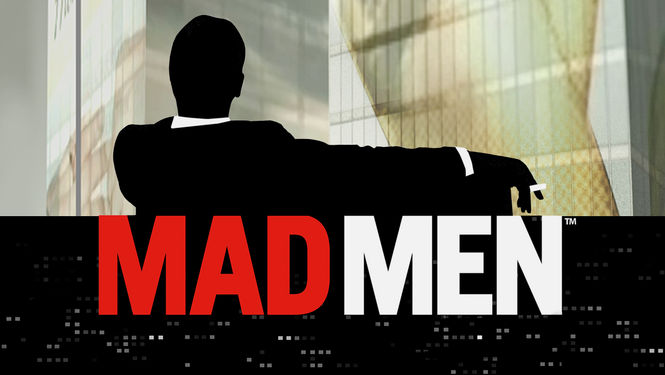It’s time for another installment of Word Soup Wednesday, in which we bring you some weird, funny, and interesting words from recent TV.
anxiet
Roger Furlong: “I’m burning calories with the old anxiety diet. You know, the anxiet.”
“D.C.,” Veep, June 23, 2013
Anxiet is a combination of anxiety and diet. Other bizarre diets include the vinegar and water diet popularized by poet Lord Byron; the grapefruit diet, also known as the Hollywood Diet; and the cabbage soup diet. See here for even more.
border surge
Stephen Colbert: “The boys over here think they can get conservatives like me to swallow their amnesty enchilada by including so-called security measures, also known as a ‘border surge.’”
The Colbert Report, June 27, 2013
The term border surge refers to a surge, or increase, of security along the U.S-Mexican border. The plan is to “put 18,000 additional federal agents and hundreds of miles of new fencing between the two neighbors,” according to the Washington Post, or, as Colbert says, “double the border patrol with one agent every 1,000 feet.”
The proposal was approved by the Senate last week.
Colombian necktie
Gideon: “They call this the Colombian necktie.”
“Roti,” Hannibal, June 6, 2013
The Colombian necktie is “a method of execution in which the victim’s throat is slashed vertically, then his tongue is pulled out through the gaping wound toward the sternum,” dangling over the chest like a necktie.
The term comes “from its frequent use as a method of intimidation during La Violencia,” a Colombian civil war. Related is the Glasgow smile.
confidence man
Linda: “Gene learned confidence.”
Louise: “From a confidence man.”
“The Unnatural,” Bob’s Burgers, May 12, 2013
A confidence man is someone “who swindles his victims by using a confidence game,” so-called, says the Online Etymology Dictionary, because “the victim is induced to hand over money as a token of confidence.”
furlough
Mike: “Please, I can’t afford to be furloughed.”
“Shutdown,” Veep, June 2, 2013
A furlough is a temporary, sometimes unpaid, leave of absence. In government, furloughs can result if a plan to reduce a budget deficit is not resolved, resulting in a shutdown. The word comes from the Dutch verlof, “permission.”
high, hot, and a helluva lot
Jenny: “High, hot, and a helluva lot!”
Episode 8, Season 2, Call the Midwife, May 19, 2013
The phrase high, hot, and a helluva lot refers to the 3H enema, which apparently is a hot water and soap suds enema, according to Robbie E. Davis-Floyd, author of Birth as an American Rite of Passage. The enema may be given to “selected patients who have given the staff a hard time,” says writer Paul Dickson.
We couldn’t find the origin of the term high, hot, and helluva lot or the 3H enema. If anyone knows, please tell us in the comments.
put the tin hat on it
Sister Evangelina: “That just puts the tin hat on it.”
Episode 8, Season 2, Call the Midwife, May 19, 2013
To put the tin hat on it, according to the Oxford English Dictionary (OED), means “to bring something to a [usually unwelcome] close or climax.” The phrase may have origins in World War I, where the “tin hat” could have been “the last piece of the kit” for a soldier.
A similar phrase is to put the kibosh on something. While the origin of kibosh is unclear, one theory is that it comes from the Gaelic caip bháis, “cap of death,” which was “sometimes said to be the black cap a judge would don when pronouncing a death sentence.”
rough puff
Cody: “They’re expecting a puff piece. There’s the bluff puff. Start out with you’re her friend. . . .Then switch right over to rough puff. No one does rough puff like you.”
“First Response,” Veep, June 9, 2013
A rough puff is a puff piece that has become something that makes the intended target look bad. A puff piece is “a journalistic form of puffery,” or “extravagant praise.” Puff piece originated around 1950, says the OED.
tickety-boo
Dr. Turner: “That’s all tickety-boo marvelous.”
Episode 7, Season 2, Call the Midwife, May 12, 2013
Tickety-boo is British slang for correct or satisfactory. The term may come from the Hindi ṭhīk hai, “all right,” says the OED, or from the phrase, that’s the ticket.
truthinews
Stephen Colbert: “So this [IRS] scandal is not connected to Obama. I don’t want to hear that. I want to hear tonight’s Wørd. Truthinews. I don’t know about you but I do not watch the news to see what I don’t want to hear.”
The Colbert Report, June 24, 2013
Truthinews is based on a term Stephen Colbert introduced in 2005, truthiness, which is, according to Colbert, “ignoring what the facts say and instead going with what feels right in your gut.” Truthinews happens “when you put a bunch of guts together,” and cable networks that practice truthinews “have only one obligation: to report what the American people already think.”
[Photo: CC BY 2.0 by Jiří Zralý]



